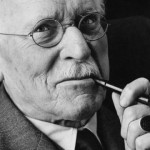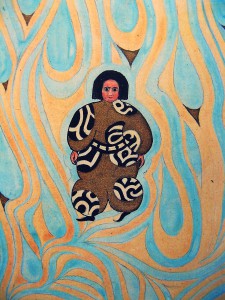There is no human experience, nor would experience be possible at all without the intervention of a subjective aptitude. What is this subjective aptitude? Ultimately it consists of an innate psychic structure which allows man to have experiences of this kind. Thus the whole nature of the human male presupposes woman, both physically and spiritually. His system is tuned into woman from the start, just as it is prepared for a quite definite world where there is water, light, air, salt, carbohydrates, etc. The form of the world into which he is born is already inborn in him as a virtual image. Likewise parents, wife, children, birth, and death are inborn in him as virtual images, as psychic aptitudes. These a priori categories have by nature a collective character; they are images of parents, wife, and children in general, and are not individual predestinations. We must therefore think of these images as lacking in solid content, hence as unconscious. They only acquire solidity, influence, and eventual consciousness in the encounter with empirical facts which touch the unconscious aptitude and quicken it to life. They are, in a sense, the deposits of all our ancestral experiences, but they are not the experiences themselves.
Jung on Archetypes as Ancestral Experiences
(Carl Jung, 1972: para. 300; quoted in Turner 1987, p.172-3)


